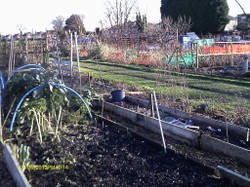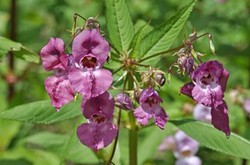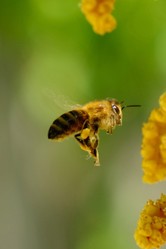The fate of a civilisation is reliant on its soil, and ours is not everywhere in good order.At many places in the world the soils accumulated over millennia are thinning, exhausted by years of neglect and exploitation. The culprit is industrialised,modern farming, governed by an inadequate philosophy, capitalism which treats the world as an inexhaustible resource and reckons nought for the morrow. But things can be turned round the soil can be saved.

Saving the Soil
by frankbeswick
The world's soils are under threat and humanity must act to save them.
Devotion and Dedication
Martin Palmer and David Manning, speaking about the once lush wheat fields of Egypt exhausted by Roman exploitation, move on to say of Northern Europe under the Romans, " Big business bought up the original small holdings and created vast estates, run as aggressively as any major agribusiness today. By the end of the 5th century AD much of modern day France, Belgium southern Germany and England was a wilderness of over-exhausted soil and lost tree cover." [Sacred Gardens, Palmer and Manning, Piatkus, 2000.]
The authors then proceed to say that into this desolation of neglect Christian monks brought healing. The monks of the Benedictine order devotedly nursed back the land to regain its fertility and set standards of cultivation for others leaving us with the richly fertile land that we enjoyed up to the present day.
But the situation that we face today is similar to what it was like at the end of the Roman Empire in the West. We in the developed world are losing soil at a serious rate and managing to export our problems to Africa and Asia, where soils are being worked to exhaustion.This has been happening for centuries, probably since the beginning of agriculture,but the rate has accelerated in the last couple of hundred years.
Here are some examples. In the low-lying lands of East Anglia [England] dust flies, not as much as happened in the American Dust Bowl, but enough to cause serious concern.The lands were in the eighteenth century drained and put to the plough, but their peat-based, organic soils lost cohesion and began to shrink. Poor management exacerbated the problem as hedgerows which had acted as windbreaks and whose roots bound soil particles together were ripped up to make large prairie-style fields unprotected against the eastern winds that scour the area. Deep ploughing is a problem, as it breaks up the fungal networks that also augment soil cohesion.
But in this and other areas floods see soil washed down into rivers and hence out to sea. This problem is worsened on farms that are low in trees, especially along river banks, because they lack the tree roots that hold soil together. Soils that have been deprived of manure and compost are particularly vulnerable to this soil run off, because their soils lack the humus that manure and compost provide.Artificial fertilisers alone are not enough.
The devotion and dedication of the monks are echoed in the work of the organic movement,whose central tenet is that the soil in a farm or garden needs to be properly fed."Feed the soil so that it can feed you" is the motto. The soil is regarded not as an inert resource to be mined, but as a living reality to be tended and fed.First you farm the soil and only after that the plants. The Permaculture movement believes in nurturing the soil through ensuring that it is thoroughly planted and not left bare and under-cultivated,states that leave it prone to soil erosion. These philosophies are part of the general movement that is called eco-agriculture.
Sacred Gardens
 |
| Sacred Gardens: Inspirational and Pra... |
Humus
A genial, well-experienced gardening colleague of mine was looking at my plot a few days ago and said in his soft Irish accent, "You have good soil here." He then commented on how dark it was. The dark element to my soil is a substance called humus [not to be confused with hummus!] I have been keen to keep my humus levels up for a long time. It is so important.
Humus is a complex black, organic colloid not yet fully understood, though there have been advances in recent years. It serves the vital function of acting as a glue that binds soil particles together into the crumb structure so beneficial to cultivation and which also serves to hold nutrients and water in the soil. Soils deficient in humus are low in fertility and apt to be washed away through lack of cohesion. Humus feeds soil flora and fauna, so without it you do not have a living soil.
Soil chemistry analysis has revealed several elements to the composition of humus,which are known as humates, though more may yet be discovered. The components of humus are called humates, the main one being humic acid, a powerful black substance that plays an important role in soil. Its negative charge draws positive ions of important nutrient minerals to move towards it, and it has the effect of chelating ions,which means that it is instrumental in the chemical reactions which render nutrient chemicals usable by plants. It has a major role in preventing the locking up of phosphorus, a vital nutrient that in certain soils is prevented from being taken up by plants due to the low PH of the soil.
Another important humate is fulvic acid, which is a powerful acid produced by bacterial decay of organic material. It plays a significant role in the transport of amino acids, auxins,enzymes and hormones to roots and in chelating key minerals.
There are also other substances, such as humins, which are carbohydrate-like molecules which attract important nutrients and which provide a site for soil micro-organisms to do their work. Leonardite, a mineral formed from humified plant deposits, composed of 85% humic acid and related to coal serves an important role as a bio-stimulant for plant growth.
Here is how you can add humus. You can add compost directly, or you can feed the edaphon, which is the collective name for the life of the soil, and leave the job to the micro-organisms and worms.Manure, seaweed, leaf mould, all act as food for the staggeringly huge and complex array of flora and fauna in the soil and will through processes of decomposition turn ultimately into humus. Worm compost is especially good for the soil, as it is produced from kitchen scraps,which are nutrient rich.
Roots and Hyphae
Robert Macfarlane in his eminent opus, Underland, walks through Epping Forest with a mycologist and tries to find the hyphae that permeate all healthy soils. He, of course, failed, as the fungal hyphae are microscopically thin. Their existence was little known and they were confused with plant roots,but they are significantly different and play, along with roots, a major role in soil health and stability. The hyphae are the living fungus of which the visible mushroom is merely the fruiting body.
Roots and hyphae work symbiotically in vast networks in which the roots pass down to the hyphae the sugars produced by photosynthesis, but the hyphae send to the roots the soil minerals that the plants need. Trees have vast networks of roots and hyphae that interact with the hyphae of other forest trees and pass on chemical messages through the forest. But it is of critical importance that networks like this serve to bind soils together.
There are serious implications deriving from what I have just said. Soil disturbance breaks up the networks of hyphae and thus weakens the soil, as does grubbing up tree roots. Some green thinkers argue for no soil disturbance at all, which means no digging, but that is impractical. Soils have always tolerated rooting animals, such as pigs, so they can thrive with some disturbance. But deep, widespread ploughing is harmful to soil cohesion and may be responsible for much soil erosion.Shallow ploughing at best should be the norm for farms, and gardeners should dig when necessary only. Growing in raised beds is quite desirable, as it involves no disturbance of the underlying soil.
Supporting your fungi is useful. There are two ways of doing this. Avoiding artificial fertilisers, which damage fungal hyphae, is important. Stick to organic feeds, such as manure, compost, leaf mould,blood fish meal and bone, and seaweed.These build up the humus in which fungi thrive. You can also add mycorrhizal fungi to your plantings. These are plant specific, so get the type that suits what you are planting and sprinkle it into the planting hole.
You can also have trees, bushes and shrubs. Encourage hedges and do not dig them up unless infected. Their roots will help stabilise the soil. Do not dig around trees if you can avoid it, as digging,particularly ploughing, breaks up the hyphae on which the tree depends and which bind soils together. If you need to fell tree leave the stump in place to coppice [grow new shoots] unless it is necessary to be rid of it.Some of you may remember that I was forced to fell and dig up an infected damson about two years ago. I disliked doing so, but I had to save other trees on the allotment.
Permaculture advocates growing trees and perennials, which you can ever crop, as this way digging can be minimised along with the consequent soil disturbance. Grow potatoes and other root crops in raised beds rather than the ground, where possible.
For Permaculture I recommend the Earth Care Manual by my old Permaculture tutor, the late Patrick Whitefield.
Conclusion
My soil is good, but there is but a small patch of it 375 square yards, to be precise. I have enough for my needs, so my plot alone is a small part of a world-wide solution to soil problems. Each individual must do his or her bit with the soil resources that they have in the time allotted to them. Each of us is responsible for passing on the best possible world to our successors. We cannot, dare not,must not leave the task to governments and politicians..
You might also like
Invasive Species in BritainBritain has some trouble with plants and animals that have been introduced an...
An insect friendly gardenThe Chelea Flower Show this year is displaying an insect friendly garden, wha...








 Pilgrimage. A reviewon 06/15/2025
Pilgrimage. A reviewon 06/15/2025
 Leo the Fourteenthon 05/09/2025
Leo the Fourteenthon 05/09/2025
 The Melsonby Hoardon 03/25/2025
The Melsonby Hoardon 03/25/2025



Comments
Horticulturalists do not distinguish between different ki ds of seaweed in sofar as their value as a fertiliser is concerned.
Thank you for all comments below in answer to my previous observations and questions.
Your answer in the comment box of Jun 11, 2022, advises us that "Compost is better,as it not only feeds but addsvsoil structure.but fertilisers have their place. They can supplement exhausted compost. I like liquid seaweed."
Is all liquid seaweed available to your liking or is one seaweed more apply-able, economical, effective, environmental than others?
I think that they would have nourished food webs, but there was nothing unusual or unknownnabout their efforts.
The second paragraph to the first subheading, Devotion and dedication, applauds soil rejuvenation through Benedictine efforts.
Might Benedictine monks have resuscitated soil food webs and their soils through still-known ground covers?
I am prepared to let plants grow under trees,as you suggest,but not edibles,as my experience leads me to think that the tree gives too much competition for nutrients.
Thanks.
Under your subheading Roots and Hyphae, your fifth paragraph considers not digging up hedges unnecessarily and not digging around trees.
Would you tend not to let edible, grassy or ornamental plants grow from around the trunk base outward to the drip line?
It's disappointing that such an effective extension service (at least before COVID, during and after which I have no experience) finds no public counterpart on your side of the (Atlantic) pond, where it seems not to promise to arise or fare as well for political reasons.
But it's heartening to read that you have private-sector soil services that hopefully function effectively and responsibly.
I would not laugh at such a happening as mis-applying something so helpful and simple to organize as a public-sector soil analysis service. I would -- and did -- laugh over your humorous, succinct, undoubtedly accurate way with words.
Derdriu,you are still capable of laughing at our disreputable government. Over here the British people have ceased to laugh at them.
I understood Derdriù,no problems.
We do have private soil services, but they have nought to do with government.